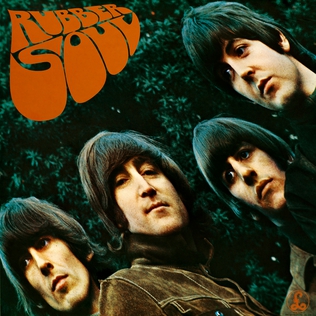
Rubber Soul is the sixth studio album by the English rock band the Beatles. It was released on 3 December 1965 in the United Kingdom, on EMI's Parlophone label, accompanied by the non-album double A-side single "Day Tripper" / "We Can Work It Out". The original North American release, issued by Capitol Records, contains ten of the fourteen songs and two tracks withheld from the band's Help! album. Rubber Soul was met with a highly favourable critical response and topped sales charts in Britain and the United States for several weeks.

The English rock band the Beatles are commonly regarded as the foremost and most influential band in popular music history. With a line-up comprising John Lennon, Paul McCartney, George Harrison and Ringo Starr, they sparked the "Beatlemania" phenomenon in 1963, gained international superstardom in 1964, and remained active until their break-up in 1970. Over the latter half of the decade, they were often viewed as orchestrators of society's developments. Their recognition concerns their effect on the era's youth and counterculture, British identity, popular music's evolution into an art form, and their unprecedented following.

The Swinging Sixties was a youth-driven cultural revolution that took place in the United Kingdom during the mid-to-late 1960s, emphasising modernity and fun-loving hedonism, with Swinging London denoted as its centre. It saw a flourishing in art, music and fashion, and was symbolised by the city's "pop and fashion exports", such as the Beatles, as the multimedia leaders of the British Invasion of musical acts; the mod and psychedelic subcultures; Mary Quant's miniskirt designs; popular fashion models such as Twiggy and Jean Shrimpton; the iconic status of popular shopping areas such as London's King's Road, Kensington and Carnaby Street; the political activism of the anti-nuclear movement; and the sexual liberation movement.

"When I'm Sixty-Four" is a song by the English rock band The Beatles, written by Paul McCartney and released on their 1967 album Sgt. Pepper's Lonely Hearts Club Band. McCartney wrote the song when he was about 14, probably in April or May 1956, and it was one of the first songs he ever wrote. The song was recorded in a key different from the final recording; it was sped up at the request of McCartney to make his voice sound younger. It prominently features a trio of clarinets throughout.
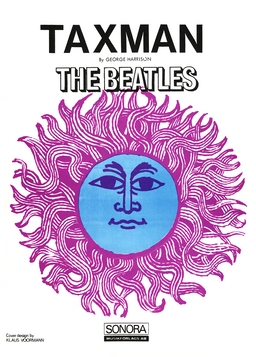
"Taxman" is a song by the English rock band the Beatles from their 1966 album Revolver. Written by the group's lead guitarist, George Harrison, with some lyrical assistance from John Lennon, it protests against the higher level of progressive tax imposed in the United Kingdom by the Labour government of Harold Wilson, which saw the Beatles paying over 90 per cent of their earnings to the Treasury. The song was selected as the album's opening track and contributed to Harrison's emergence as a songwriter beside the dominant Lennon–McCartney partnership. It was the group's first topical song and the first political statement they had made in their music.

"All You Need Is Love" is a song by the English rock band the Beatles that was released as a non-album single in July 1967. It was written by John Lennon and credited to the Lennon–McCartney partnership. The song was Britain's contribution to Our World, the first live global television link, for which the band were filmed performing it at EMI Studios in London on 25 June. The programme was broadcast via satellite and seen by an audience of over 400 million in 25 countries. Lennon's lyrics were deliberately simplistic, to allow for the show's international audience, and captured the utopian ideals associated with the Summer of Love. The single topped sales charts in Britain, the United States and many other countries, and became an anthem for the counterculture's embrace of flower power philosophy.

"Paperback Writer" is a song by the English rock band the Beatles. Written primarily by Paul McCartney and credited to the Lennon–McCartney partnership, the song was released as the A-side of their eleventh single in May 1966. It topped singles charts in the United Kingdom, the United States, Ireland, West Germany, Australia, New Zealand and Norway. On the US Billboard Hot 100, the song was at number one for two non-consecutive weeks, being interrupted by Frank Sinatra's "Strangers in the Night".

"You Won't See Me" is a song by the English rock band the Beatles from their 1965 album Rubber Soul. It was written by Paul McCartney and credited to Lennon–McCartney. As with songs such as "We Can Work It Out" and "I'm Looking Through You" from the same period, the lyrics address McCartney's troubled relationship with Jane Asher and her desire to pursue her career as a stage and film actress. The Beatles recorded the song during what author Mark Lewisohn describes as a "marathon" final recording session for Rubber Soul, to ensure the album's pre-Christmas release.
Adam Nicolson, is an English author who has written about history, landscape, great literature and the sea. He is also the 5th Baron Carnock, but does not use the title.

"I'll Cry Instead" is a song written by John Lennon, and recorded by the English rock band the Beatles for their third studio album, A Hard Day's Night (1964), a part-studio and part-soundtrack album to their film of the same name (1964). The song was released as a single in the US and later appeared on the album Something New in the US.

"Please Mr. Postman" is a song written by Georgia Dobbins, William Garrett, Freddie Gorman, Brian Holland and Robert Bateman. It is the debut single by the Marvelettes for the Tamla (Motown) label, notable as the first Motown song to reach the number-one position on the Billboard Hot 100 pop singles chart. The single achieved this position in late 1961; it hit number one on the R&B chart as well. "Please Mr. Postman" became a number-one hit again in early 1975 when the Carpenters' cover of the song reached the top position of the Billboard Hot 100. "Please Mr. Postman" has been covered several times, including by the British rock group the Beatles in 1963. The 2017 song "Feel It Still" by Portugal. The Man draws on "Please Mr. Postman" and includes a credit for Brian Holland.
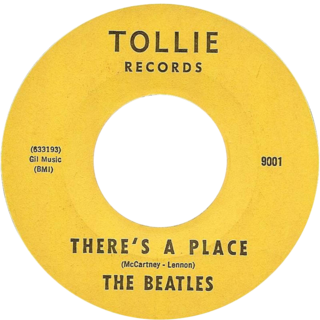
"There's a Place" is a song by the English rock band the Beatles from their debut album, Please Please Me, released in March 1963. It was written primarily by John Lennon and credited to McCartney–Lennon. In the United States, the song was released in July 1963 on the group's first US LP, Introducing... The Beatles, later reissued in January 1964 as Beatlemania surged there. It was also issued as a non-album single in the US, in March 1964, as the B-side to "Twist and Shout", reaching number 74 in the Billboard Hot 100.
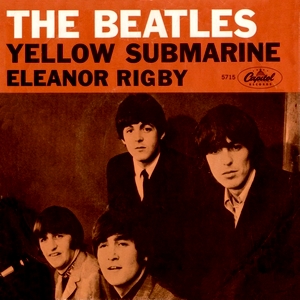
"Yellow Submarine" is a song by the English rock band the Beatles from their 1966 album Revolver. It was also issued on a double A-side single, paired with "Eleanor Rigby". Written as a children's song by Paul McCartney and John Lennon, it was drummer Ringo Starr's vocal spot on the album. The single went to number one on charts in the United Kingdom and several other European countries, and in Australia, Canada and New Zealand. It won an Ivor Novello Award for the highest certified sales of any single written by a British songwriter and issued in the UK in 1966. In the US, the song peaked at number two on the Billboard Hot 100 chart.
Propertarianism, or proprietarianism, is a political philosophy that reduces all questions of ethics to the right to own property. On property rights, it advocates private property based on Lockean sticky property norms, where an owner keeps their property more or less until they consent to gift or sell it, rejecting the Lockean proviso.
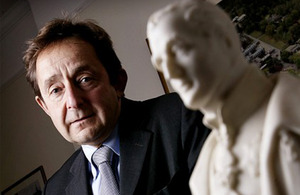
Sir Anthony Francis Seldon is a British educator and contemporary historian. As an author, he is known in part for his political biographies of Margaret Thatcher, John Major, Tony Blair, Gordon Brown, David Cameron and Theresa May. He was the 13th Master (headmaster) of Wellington College, one of Britain's co-educational independent boarding schools. He was Vice-Chancellor of the University of Buckingham from 2015 to 2020, when he was succeeded by James Tooley. In 2009, he set up The Wellington Academy, the first state school to carry the name of its founding independent school. Before that, he was head of Brighton College.
Peter Nathaniel Stearns is a professor at George Mason University, where he was provost from January 1, 2000 to July 2014.
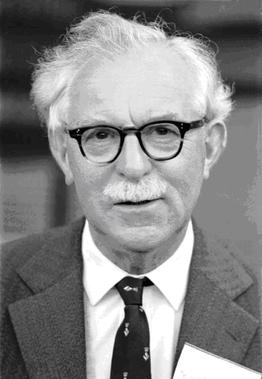
William Thomas Stearn was a British botanist. Born in Cambridge in 1911, he was largely self-educated and developed an early interest in books and natural history. His initial work experience was at a Cambridge bookshop, but he also had a position as an assistant in the university botany department. At the age of 29 he married Eldwyth Ruth Alford, who later became his collaborator, and he died in London in 2001.
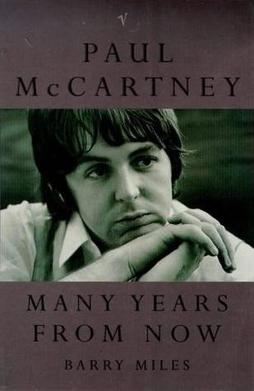
Paul McCartney: Many Years from Now is a 1997 biography of Paul McCartney by Barry Miles. It is the "official" biography of McCartney and was written "based on hundreds of hours of exclusive interviews undertaken over a period of five years", according to the back cover of the 1998 paperback edition. The title is a phrase from McCartney's song "When I'm Sixty-Four", from the Beatles' 1967 album Sgt. Pepper's Lonely Hearts Club Band. The book was first published in the United Kingdom in October 1997 by Secker & Warburg.
Matthew Houlbrook, known professionally as Matt Houlbrook, is a British academic historian who is Professor of Cultural History at the University of Birmingham.
Jonathan Schneer is an American historian of modern Britain whose work ranges over labor, political, social, cultural, and diplomatic subjects. He is an emeritus professor at the Georgia Institute of Technology. In addition to writing numerous scholarly and popular books, he has written for such publications as The Washington Post, The New York Times, The Wall Street Journal, and Foreign Policy. His work has been translated into German, Chinese, and Turkish. He has appeared often on American, Canadian, and British media. He has lectured in six countries.














